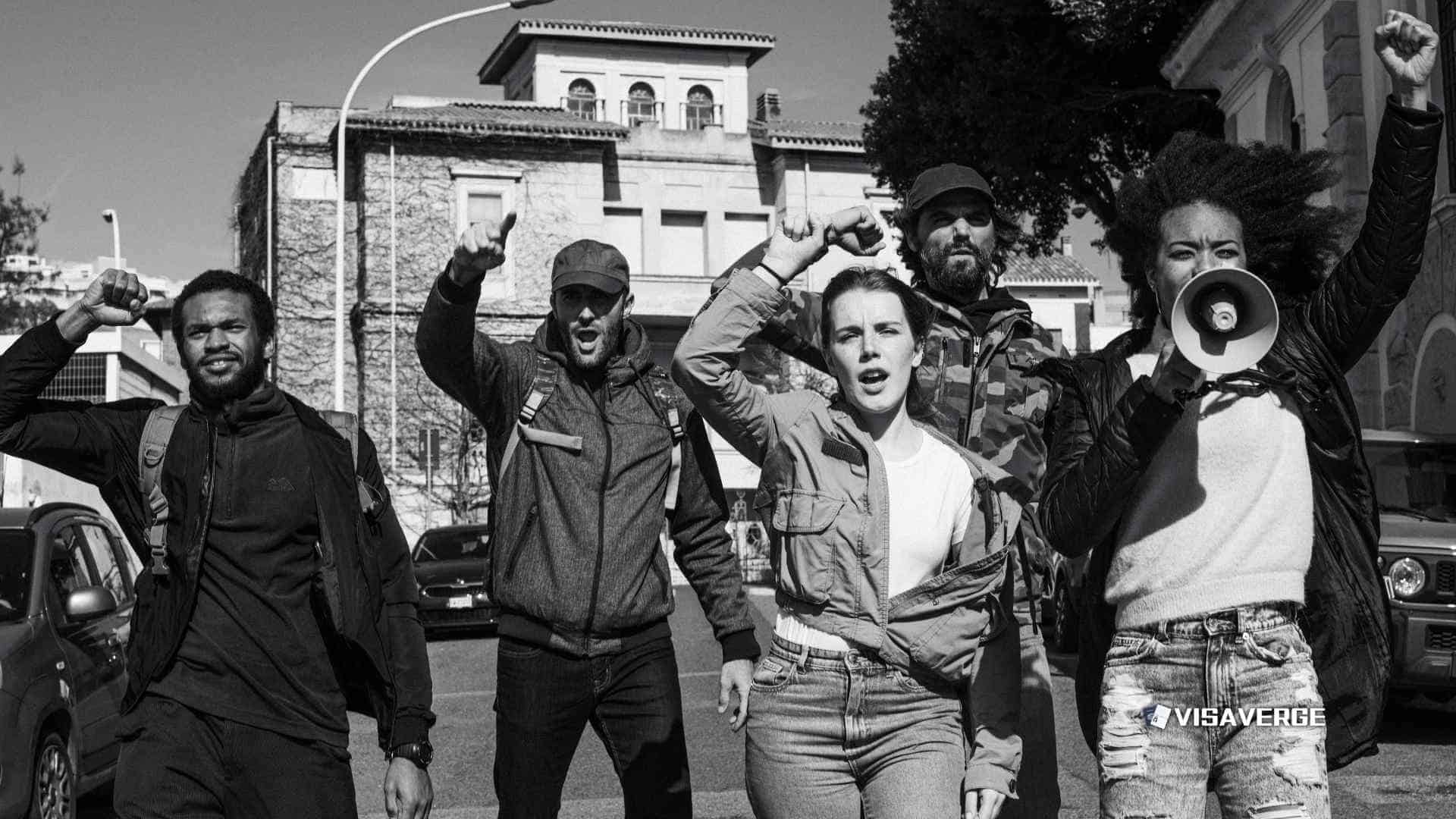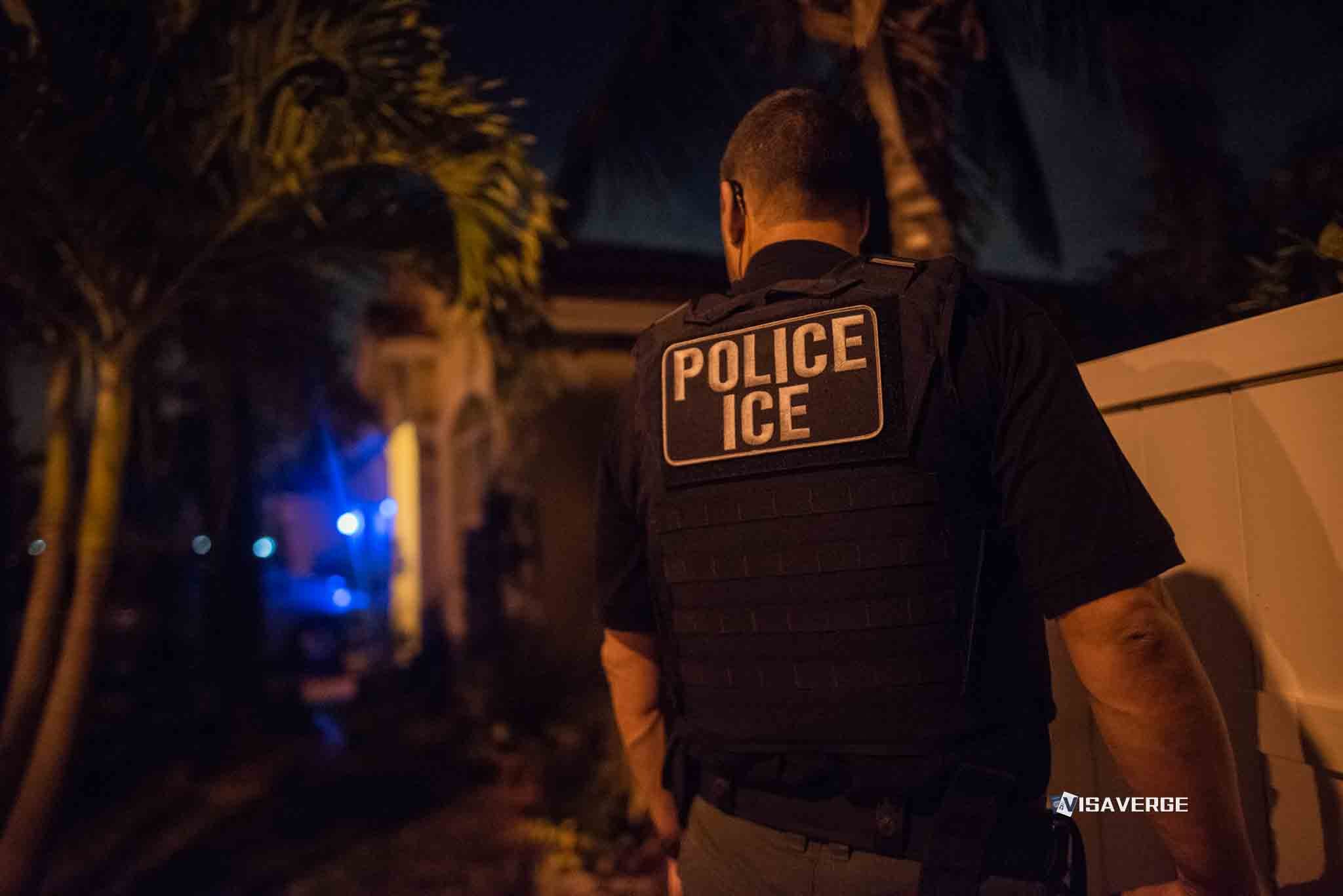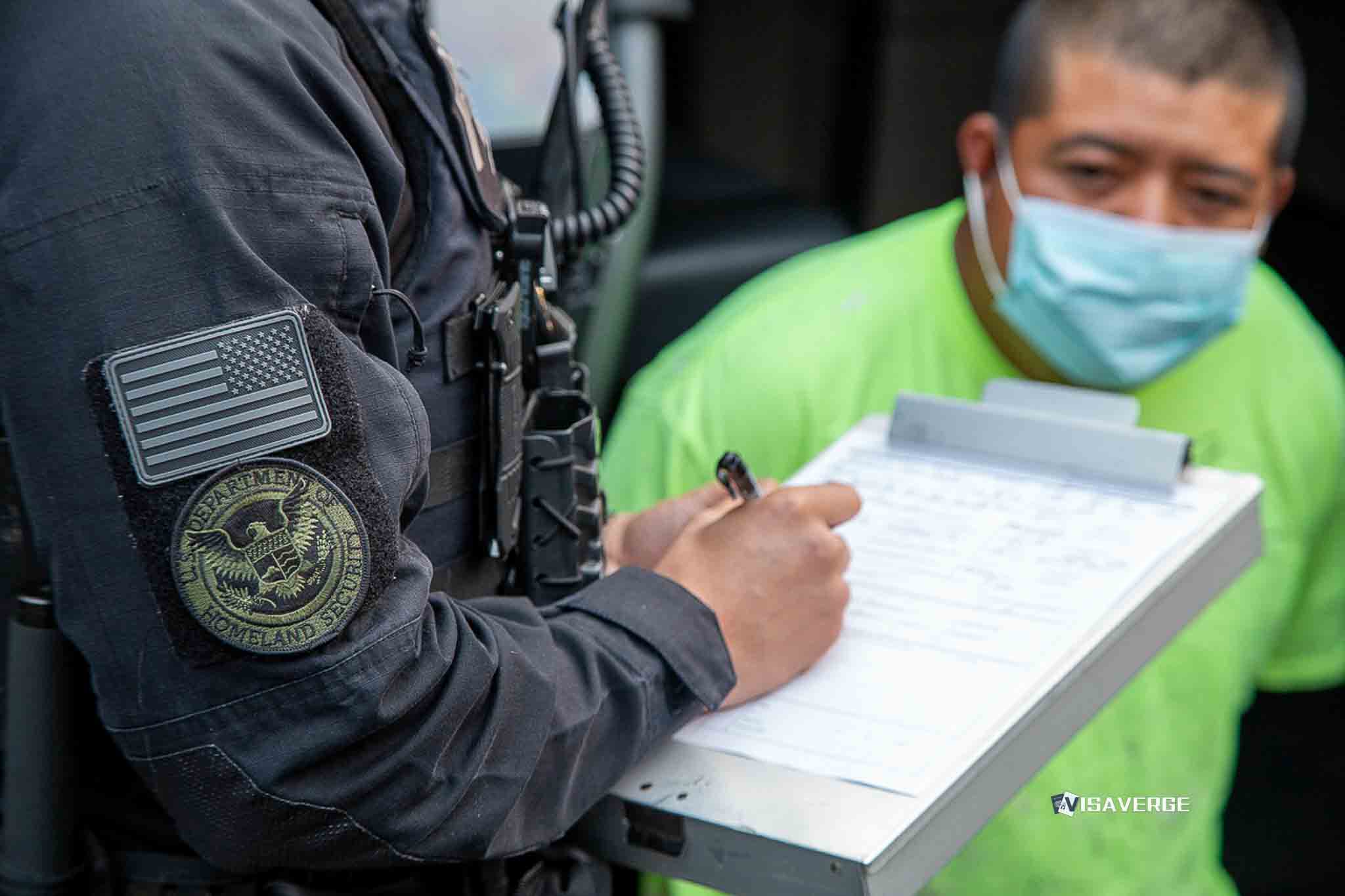(NAPLES, FLORIDA) The Tamiami Trail protest that brought thousands of people to downtown Naples on October 18, 2025, has become a defining moment for immigrant families from nearby Immokalee, a farmworker town about 45 miles away. Roughly 3,000 demonstrators filled the streets around the Collier County Courthouse, holding handmade signs, chanting in Spanish, Haitian Creole, and English, and calling for an end to immigration raids they say are tearing their community apart.
The Tamiami Trail protest was peaceful but urgent — a public answer to President Trump’s hard-line immigration policies and recent Immigration and Customs Enforcement (ICE) operations in Immokalee itself.

Fear and daily life in Immokalee
ICE operations, which include agents boarding buses that carry farmworkers to and from tomato fields, have spread fear through a town that swells to about 40,000 people during peak harvest season. Many of Immokalee’s residents come from Haiti, Guatemala, and other parts of Latin America. A mix of U.S. citizens, permanent residents, and undocumented workers share crowded trailers and labor-intensive jobs.
Parents now talk about keeping identification documents by the door and rehearsing what their children should do if a parent disappears during a shift. Some say they avoid driving, worried that something as minor as a broken taillight could change everything.
Those fears spiked on November 13, 2025, when neighbors recorded video of ICE agents stopping a bus in Immokalee and detaining several farmworkers. Students at Immokalee High School began getting calls and messages that their parents had been taken, and school staff scrambled to comfort teenagers who did not know whether their families would be together that night.
The principal warned teachers and parents that ICE vehicles were reported at key intersections around town, adding another layer of tension to bus routes, grocery trips, and morning commutes. Some families kept children home from school the next day, fearing more raids.
The protest: who showed up and what they demanded
For many who joined the Tamiami Trail protest, that November bus stop became the final push to leave work early, pile into cars, and head toward Naples. Protesters arrived with children in strollers and elders in folding chairs, treating the courthouse lawn like a community plaza.
Speakers switched between languages and demanded that families not be punished for seeking a better life. Homemade banners compared Immokalee to the rest of the United States 🇺🇸, arguing that the country depends on the labor of people who live under constant threat of deportation. Others simply read “Protect Our Parents” or “Stop.”
Among the speakers was Jonas Mervilus, a Haitian-American resident who tried to put the emotional strain into words. He said:
“Just seeing what’s going on just really hinders a lot of growth for us, not from a physical standpoint, but from a spiritual standpoint.”
His voice broke as people around him nodded. Later he described Immokalee as “a representation of what America really means to a lot of people,” a place where hard work in the fields is supposed to open doors for the next generation, not end with a knock from federal agents at dawn or dusk.
Organizing, community response, and local services
Local organizers framed the Tamiami Trail protest as both resistance and a show of hope, insisting that immigrant families should not have to choose between earning a paycheck and seeing their children grow up. They criticized what they view as anti-immigrant laws and executive actions from Washington, but they also highlighted local programs helping young people imagine futures beyond the fields.
According to analysis by VisaVerge.com, local responses often emerge when federal policy intensifies enforcement without offering realistic ways for long-settled workers to regularize their status or reunite with relatives abroad or across the border.
The Immokalee Foundation and youth support
Education advocates point to organizations like The Immokalee Foundation as central to giving students a sense that their lives can be bigger than the fear surrounding their parents. Key facts about the foundation:
- Works with more than 1,300 students each year
- Offers programs from early reading to college counseling and vocational training
- Sees growing demand as immigration raids increase
Staff members report teenagers asking whether it makes sense to plan for college if their parents might be deported before graduation or senior prom.
Immigration system context and legal options
Nationally, immigration enforcement falls under the Department of Homeland Security. Workers in places like Immokalee can face arrest even if they have lived in the country for years and have U.S. citizen children.
U.S. Citizenship and Immigration Services (USCIS), a different agency, handles applications such as family petitions filed on Form I-130, which some relatives of Immokalee farmworkers are using in hopes of securing permanent status over time. Information about humanitarian options like Temporary Protected Status is posted on the agency’s website, including for some nationals of Haiti, at U.S. Citizenship and Immigration Services.
- Reference to family petition:
FormI-130
Despite these pathways, few workers feel truly safe.
Local government response and community safety planning
In Collier County, officials have said little publicly about the recent raids, noting that federal agencies do not always coordinate details of enforcement operations with local government. Some local leaders argue they must respect federal law, while pastors, teachers, and clinic workers quietly help families create emergency plans in case a parent does not come home.
Advocates say the Tamiami Trail protest forced a conversation that had been happening in whispers, bringing the fear and hope of Immokalee’s immigrant families into full view for wealthier residents who often only see farmworkers through a car window on their way to the beach.
What happens next: ongoing organizing and hopes
For now, community members in Immokalee say they will:
- Keep organizing and documenting raids.
- Urge neighbors to know their rights.
- Continue sending their children to school and climbing back onto buses before sunrise.
They hope that peaceful marches like the Tamiami Trail protest in Naples will, over time, change how Florida and the rest of the United States 🇺🇸 see them.
As one organizer put it, the struggle is not only against deportation, but for the simple idea that the children of Immokalee can grow up believing they belong here — today, tomorrow, and for all the years ahead.
This Article in a Nutshell
On October 18, 2025, about 3,000 people protested in Naples against ICE operations and hard-line federal immigration policies affecting Immokalee farmworkers. Recent enforcement, including a November 13 bus stop detention, spread fear across a town that swells to roughly 40,000 during harvest. Speakers demanded protections for families and criticized policies that threaten community stability. Local organizations like The Immokalee Foundation provide education and support as residents document raids, learn their rights, and continue organizing for long-term change.







